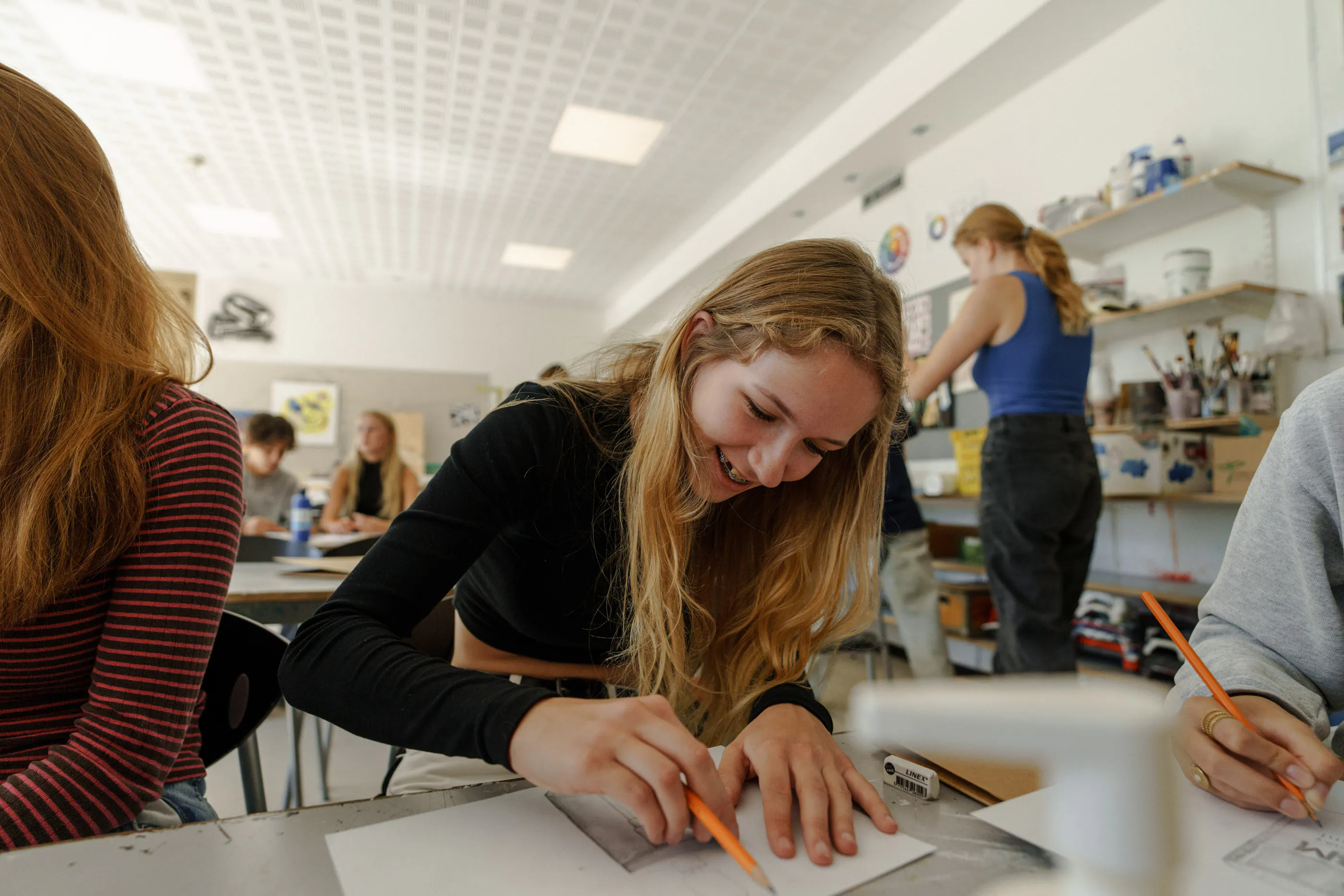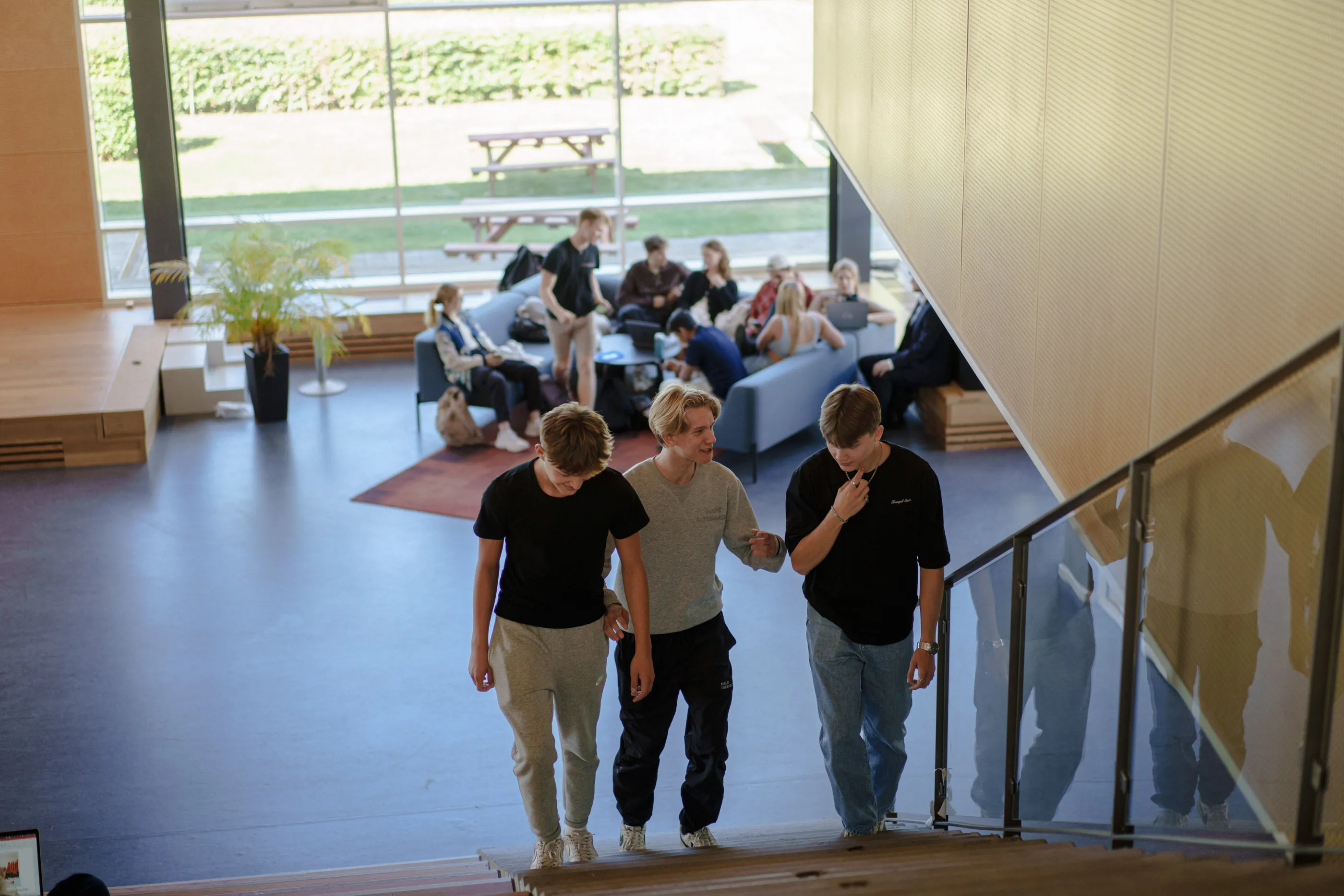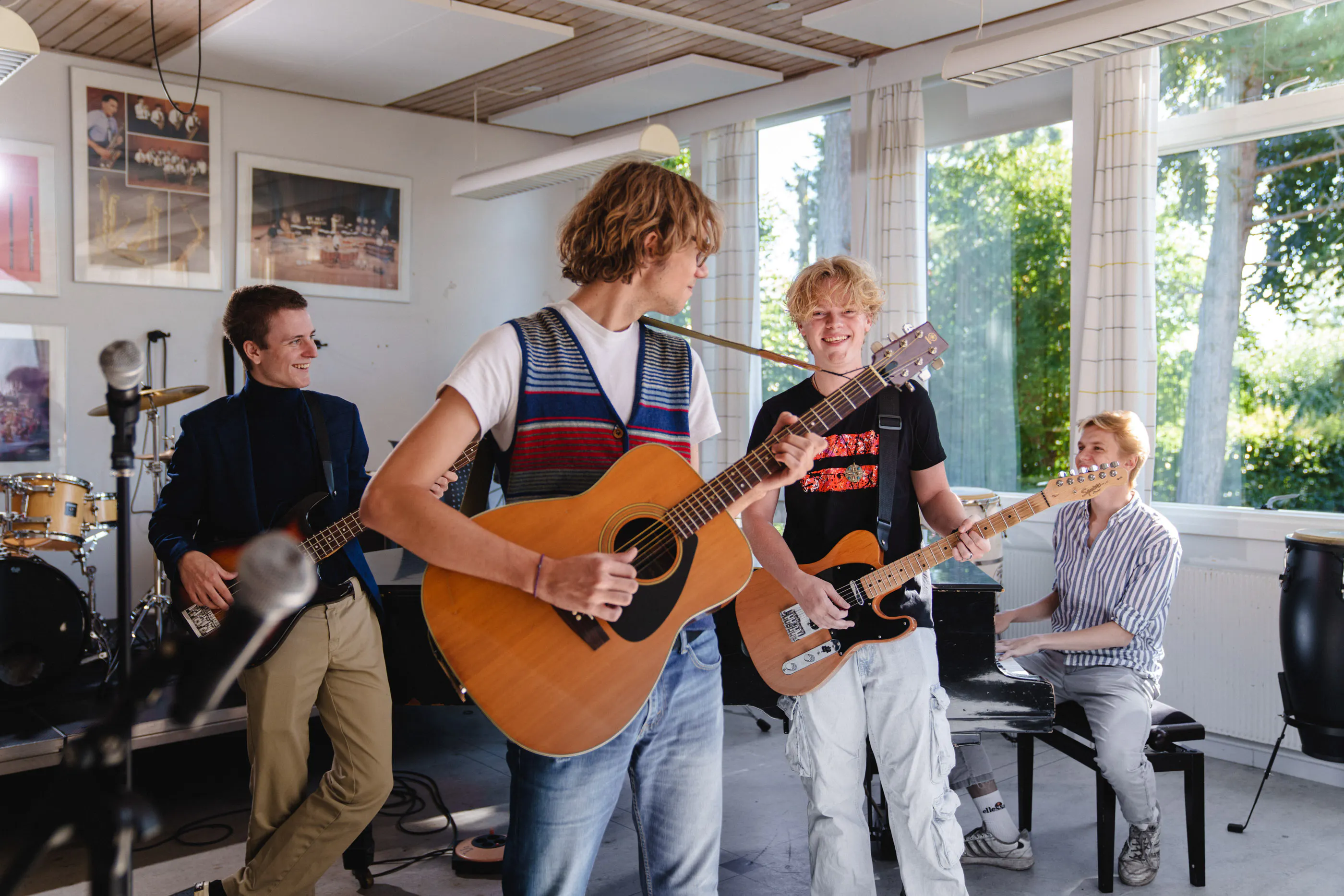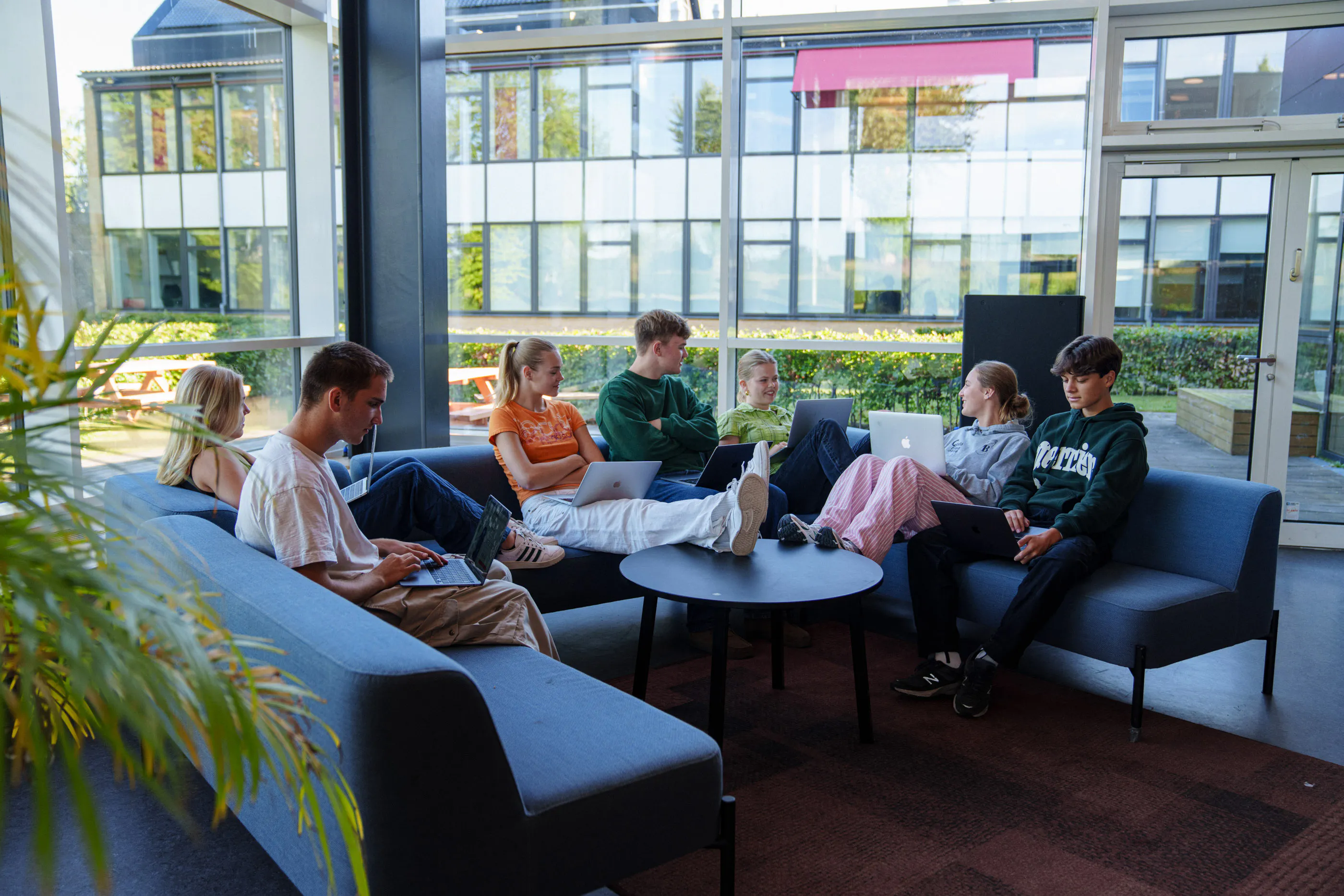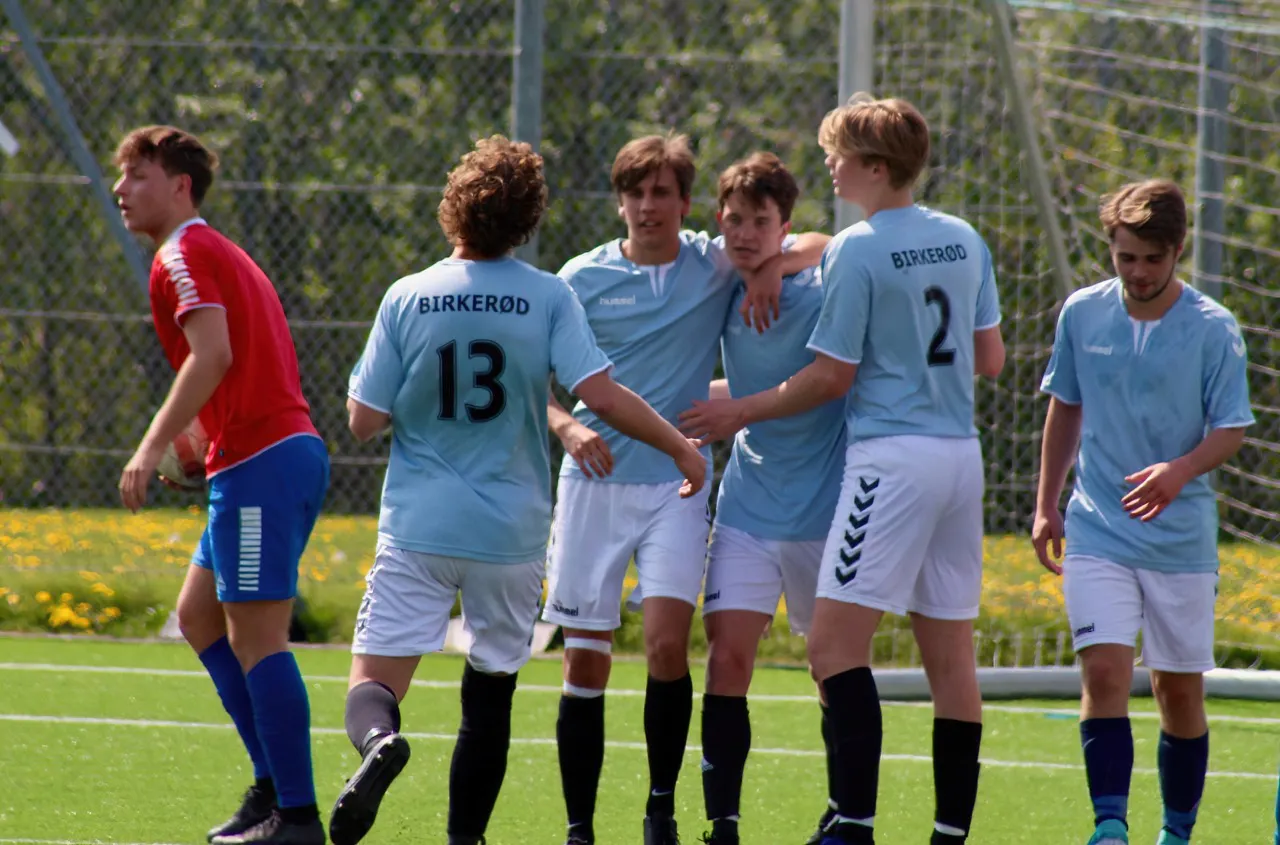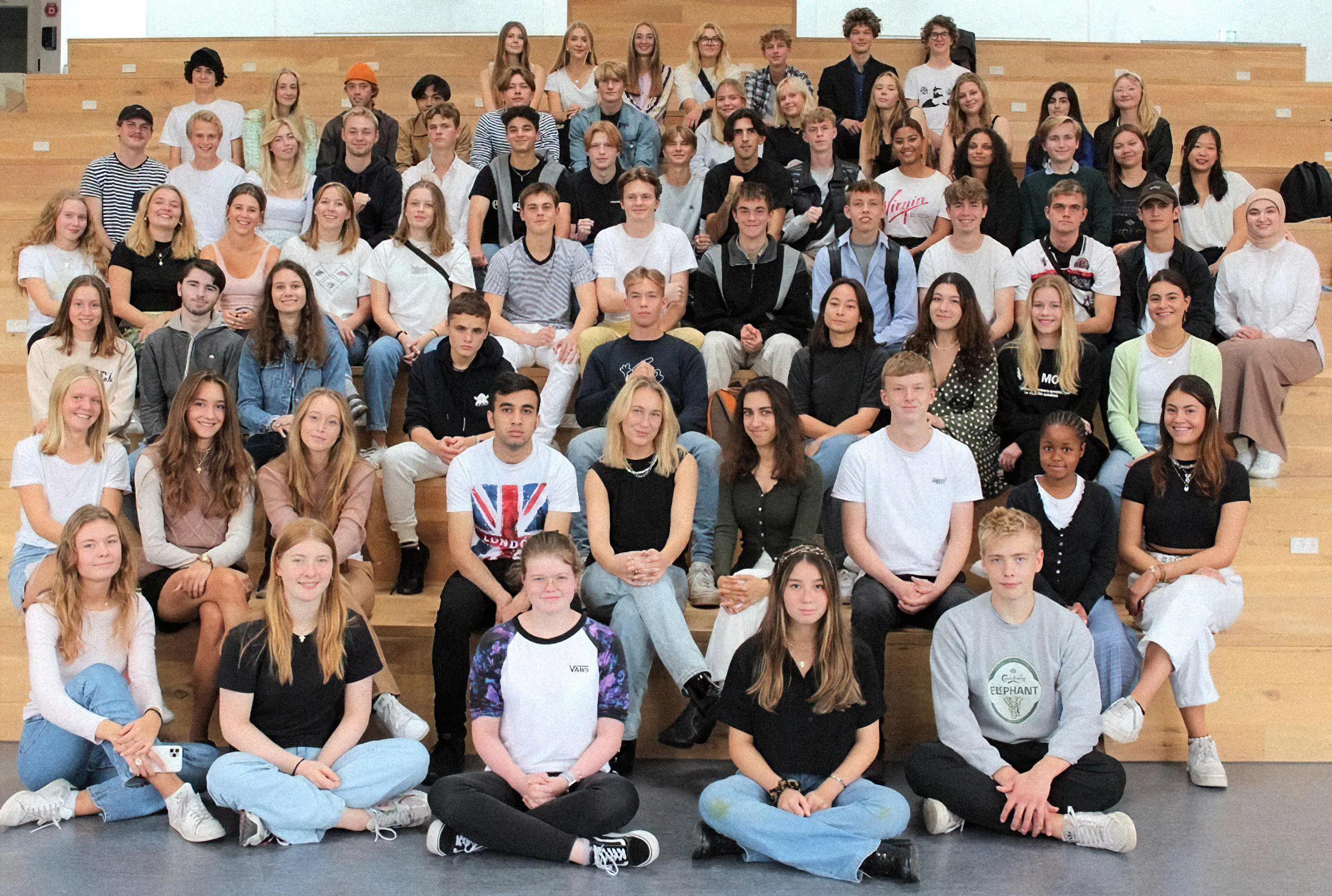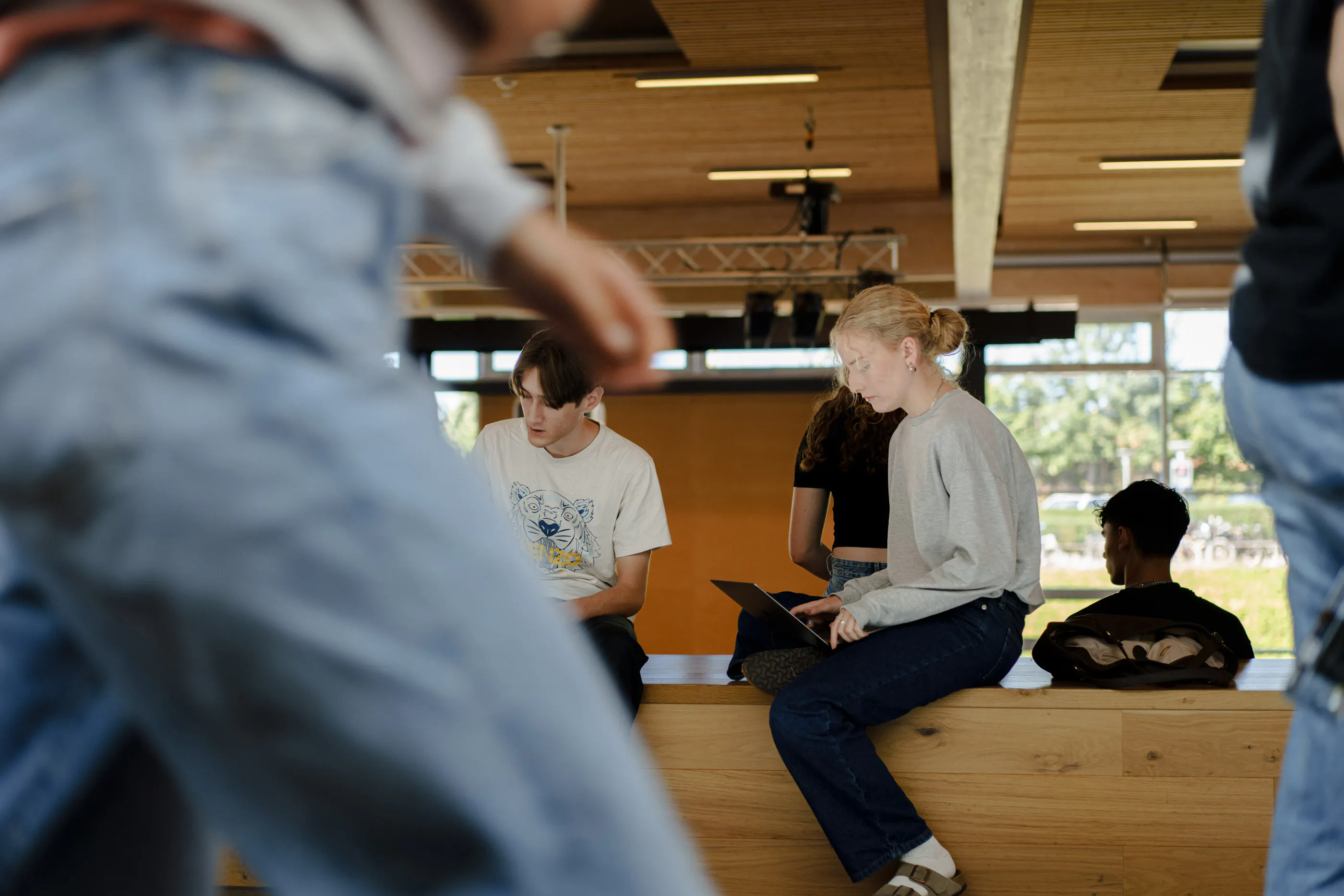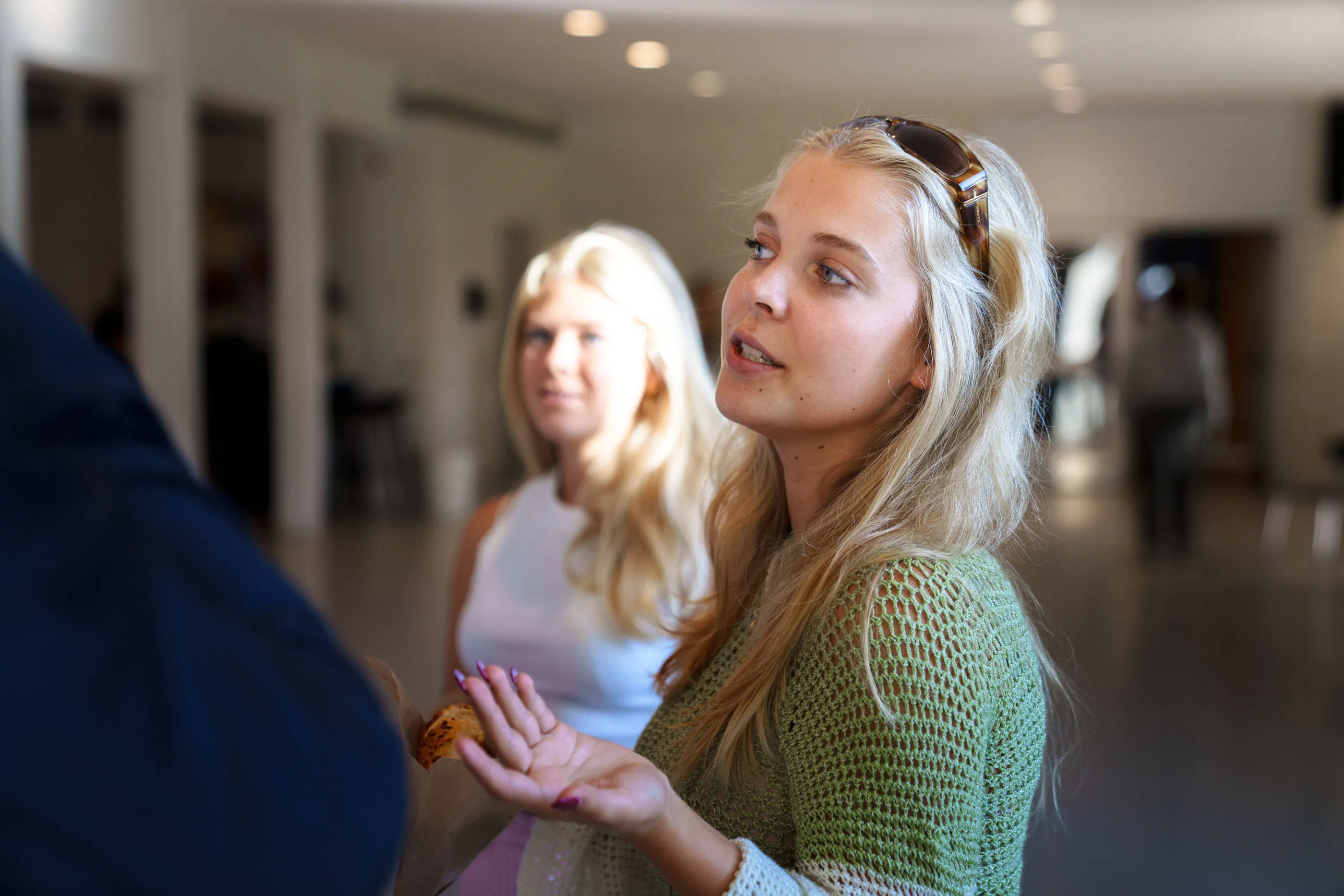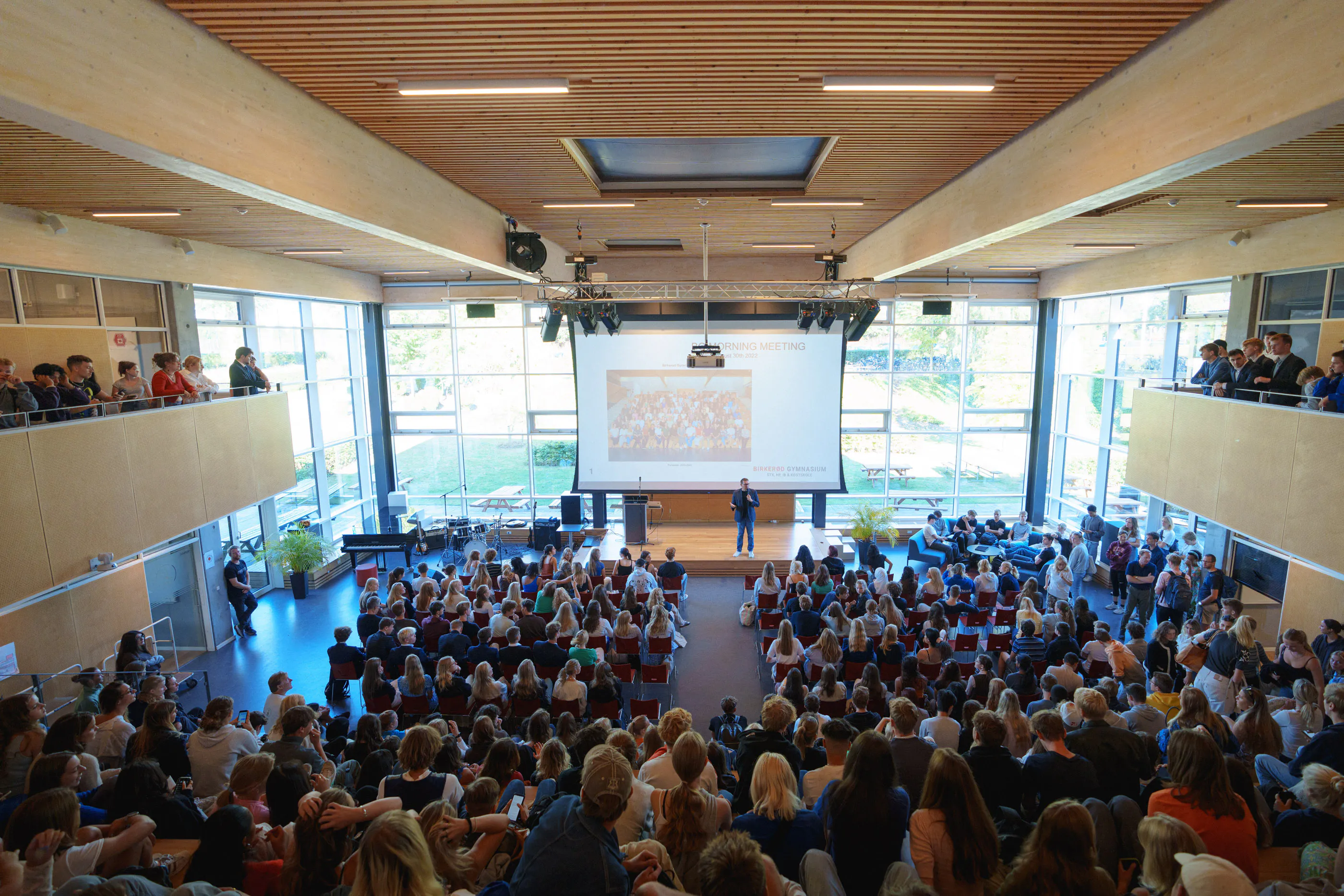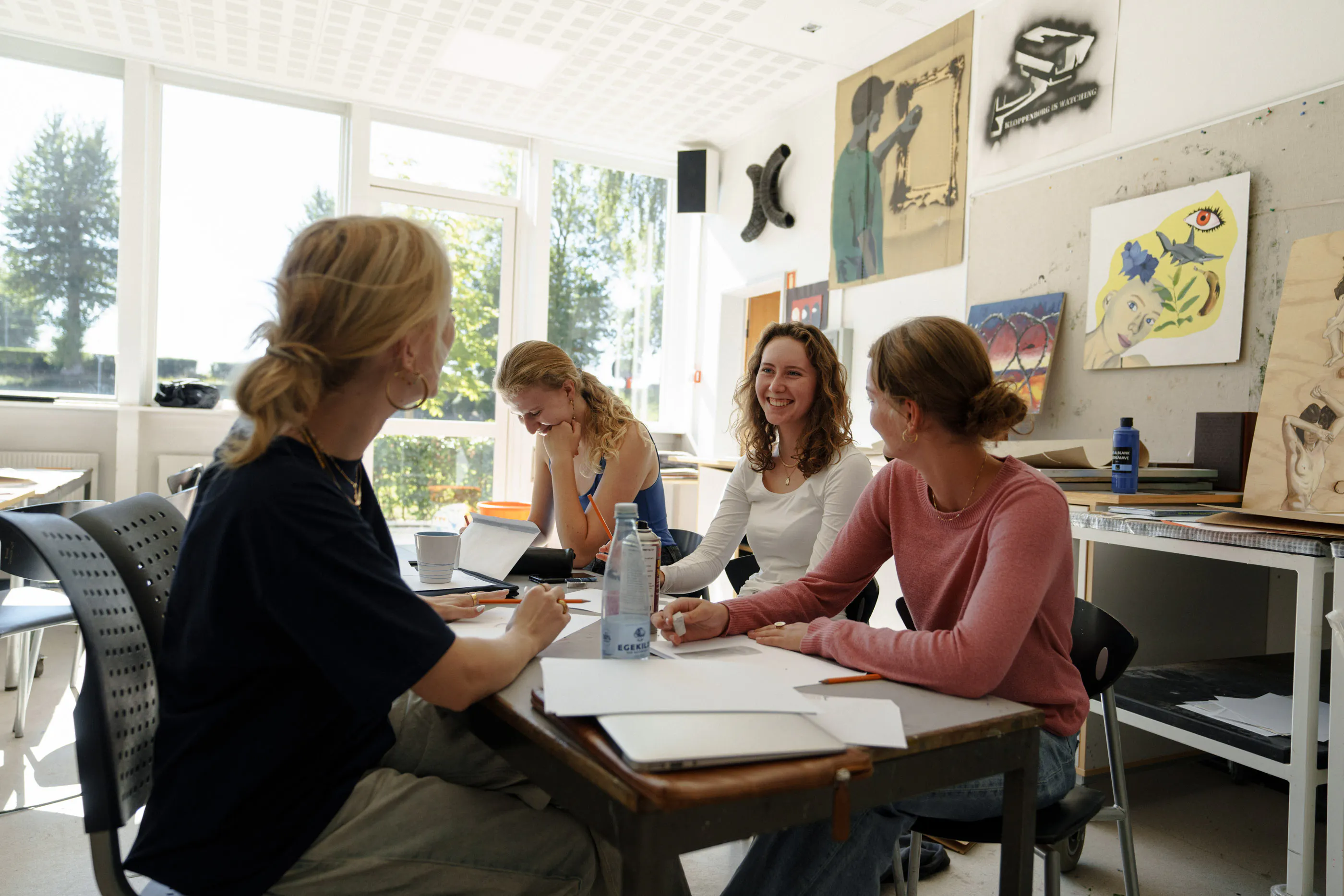
IB
CAS Activities
The purpose of CAS is to encourage personal growth and development acquired through experimental learning. It requires that the student reflect on the experiences gained during the 2 year Diploma Programme.
This is done by gaining experiences within the 3 strands: Creativity, Activity and Service.
CAS is an integrated part of the IB Diploma Programme as one of the core elements and is a requirement for the award of an IB Diploma.
CAS at BG follows the requirements of the IB and from the very beginning of the IB Diploma Programme, CAS is a corner stone of the IB Diploma Programme.
For the school year 2019/20, all IB students are divided into CAS classes, each with a CAS teacher (also called CAS advisor). The individual CAS class and their teacher meet every other week.
What is CAS? Take a look!
The three strands of CAS are
Creativity
Arts and other experiences that involve creative thinking.
Activity
Physical exertion contributing to a healthy lifestyle.
Service
An unpaid and voluntary exchange that has a learning benefit for the student.
The main objectives of the CAS classes are to:
Requirements
Introduce the students to the overall CAS requirements of the IB, among these introducing the students to ManageBac.
Social bonds
Create an environment where the individual student will make good social bonds.
Socially
Create social activities within the class community with the aim of socially embedding the individual student.
Inspiration and support
Create an environment where the individual student will get inspiration and support in the construction of the CAS programme.
Community
Create an environment where CAS experiences embracing the entire school community are developed.
Global
Create an environment where CAS experiences with global significance are developed.
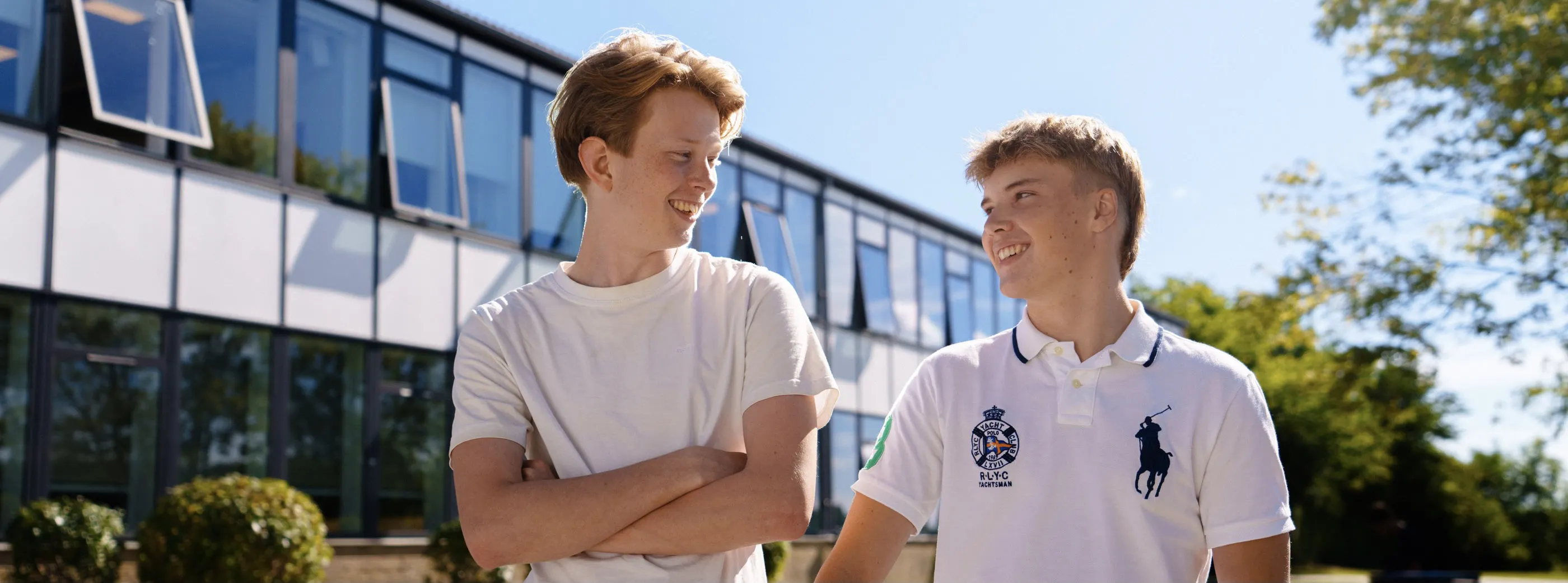
The CAS experiences is a great opportunity to meet new friends
More information
What are the CAS advisor's responsibilities?
- Taking part in the intro activities of the IB1 class.
- Conducting session (½ of the 2u meeting) every other week.
- Conducting CAS interviews with the CAS class students according to IB CAS requirements.
- Observing the well-being of the students in the CAS class.
- Facilitating the practical work associated with the CAS study trip (April/May 2020).
- Handing out student cards.
- Facilitating, in collaboration with the janitors, the cleaning obligations of the CAS class.
The following is an outline for the activities connected to the session from week 33 – week 41 in the autumn of 2019. The objectives of this session are associated with objective 1, 2, 3, and 4. For each session, the CAS class teacher will be available. After the autumn break, objectives 5 and 6 will be addressed.
What are the specific CAS requirements?
The purpose of CAS is to encourage personal growth and development acquired through experimental learning. It requires that the student reflect on the experiences gained during the 2 year Diploma Programme.
This is done by gaining experiences within the 3 strands: Creativity, Activity and Service.
CAS is an integrated part of the IB Diploma Programme as one of the core elements and is a requirement for the award of an IB Diploma.
What is the scope of CAS?
CAS starts at the beginning of the IB Diploma Programme and is evenly spread out over a period of at least 18 months. The experiences gained should have an even balance between Creativity, Activity and Service.
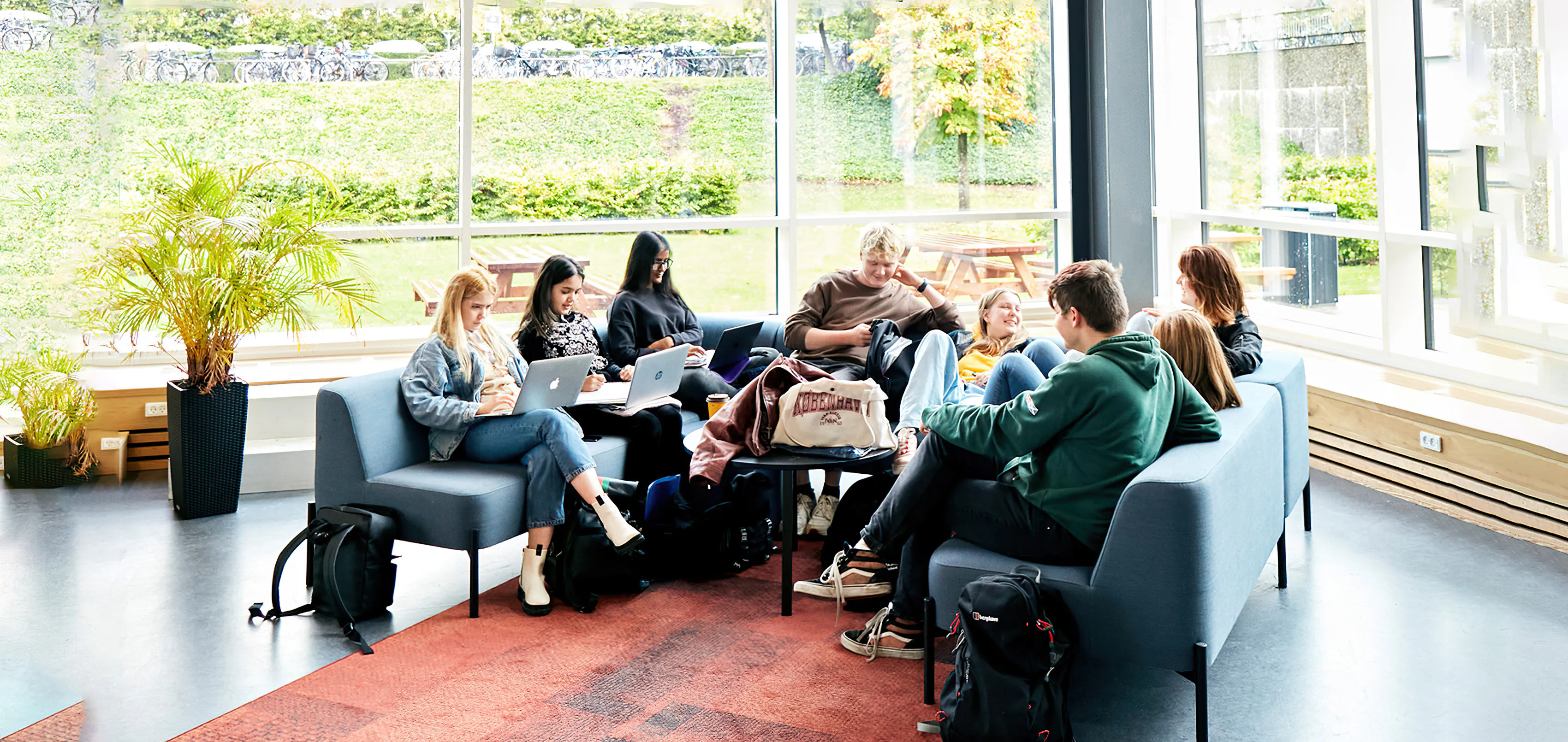
Students
The CAS project
A CAS experience can be one of the following:
- A single CAS experience
- A series of CAS experiences
- A CAS project, being a collaborative series of CAS experiences.
A CAS project is a requirement in the CAS programme and is a CAS experience of longer duration. It challenges students to show initiative, demonstrate perseverance, and develop skills such as collaboration, problem solving, and decision-making. The CAS project can address any single strand of CAS or combine two or all three strands.
Students must reflect on their CAS experiences and provide evidence in their CAS portfolios of having achieved seven learning outcomes. The reflections are used as a tool for creating awareness of strengths, limitations and areas for further personal development.
The seven learning outcomes are:
- Identify own strengths and develop areas for growth
- Demonstrate that challenges have been undertaken, developing new skills in the process
- Demonstrate how to initiate and plan a CAS experience
- Show commitment to and perseverance in CAS experiences
- Demonstrate the skills and recognize the benefits of working collaboratively
- Demonstrate engagement with issues of global significance
- Recognize and consider the ethics of choices and actions
